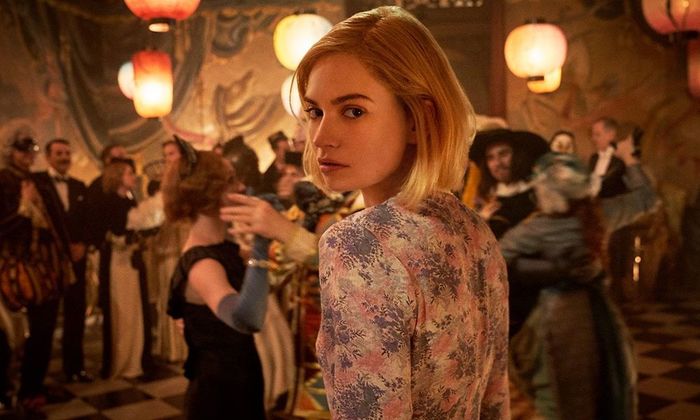Follow Your Own Rhythm: Pixar’s Soul
Bob Hewis explores Pixar’s new film Soul against the backdrops of jazz music and black America.
It was Boxing Day 2020. In my family’s search for some light viewing as the glow of the day before was beginning to fade (unlike the indigestion), we happened upon Pixar’s Soul. Despite having seen the trailer, I had absolutely no idea what the story was actually about, but we pressed play.
I quickly realised why the film’s publicity had been so vague; the story proved quite convoluted and at times the overall pace of the film suffered as a result, so I was surprised at how much of a treat Soul turned out to be. Without robbing you of the pleasure of watching this unique little tale reveal itself in the expert way that has become characteristic of Pixar, the plot can be summarised like this: Joe Gardner, a part-time music teacher/aspiring jazz musician, thinks his luck has changed when he secures a gig as pianist for jazz legend Dorothea Williams. Joe’s change in fortune proves fleeting, however, when he falls down a manhole and finds himself in The Great Before, a training ground for souls yet to be sent to Earth. Tasked with mentoring the troublesome Soul 22, the coupling seems doomed from the start. Joe is desperate to return to Earth and Soul 22 hopes never to go, but they alone are able to give each other an invaluable gift: a new perspective. By the end of the film, we are left wondering who was the mentor and who was the student.
The world of Soul is constructed against two backdrops. The first of these is jazz music itself. To many, including Joe Gardner (and myself), jazz is not just a style of music; it is expression, improvisation, and release. Nowhere is this more beautifully illustrated than during Gardner’s audition for Dorothea Williams where he fully gives himself to the music and enters the Zone, the space in which the physical body is closest to the spiritual world. In a visually stunning shot, Gardner’s music appears as an extension of his soul, played for no one but himself. This theme of doing things for the simple joy of doing them, of making each moment an end rather than a means, is at the heart of what jazz is. It is intricately woven into the fabric of the film itself, in both Pixar legend Pete Docter’s story and in the playful score of Atticus Ross and Trent Reznor.
“Jazz is not just a style of music; it is expression, improvisation, and release.”
This omnipresent spirit of jazz is set in dialogue with Soul’s second backdrop: black America. Pixar has long established itself as a pioneer in the animation industry, unafraid to use the medium’s glossy veneer to bring important issues to a wider audience, such as mental health in Inside Out, or climate change in WALL-E. Soul is no exception, coming closer than any other Disney or Pixar film to creating a fully developed black protagonist, situated in a New York that conceals neither the beauty, nor the heartache of the city’s vibrant multiculturalism. Just as jazz music found its origins in slave communities and the translation of European music through the lens of the West African experience, the characters of Soul represent a network of black folks navigating different ways of carving out a space in a world where the limits are set by other people. From the representation of black-owned businesses in Dez’s salon to the concern of Joe’s mother for his financial security, this is the landscape in which Joe, for whom flagging down a taxi is a difficult task, uses jazz as a means of reconnecting with his blackness as a source of beauty, in a world that demonises him for it.
Where Pete Docter’s Soul lacks the pace and world-building of some of his earlier works, such as Monsters Inc., it is driven by a heart-warming and poignant message that comes as the perfect antidote to today’s frightening and uncertain times. The acting from all of the cast is superb, and there are enough chuckles to keep you engaged, with well-placed comic relief from some personal favourites, Richard Ayoade as Jerry and Tina Fey as Soul 22. In essence, Soul is one of the most beautiful “it’s not about the destination, it’s about the journey” stories I have ever seen. More than this, however, through the message of jazz and those who love it, the film teaches us that the most beautiful sound is made when we create space for each other to follow our own rhythm. While, unfortunately, the pandemic has meant that Soul may only be seen by those with a Disney+ subscription for the time being, I would be surprised if it didn’t eventually become another Pixar classic. All that is left to do now is to wait and see how the conspiracy-lovers will weave this newest addition into the Pixar Theory.
 Comment / Plastic pubs: the problem with Cambridge alehouses 5 January 2026
Comment / Plastic pubs: the problem with Cambridge alehouses 5 January 2026 News / Cambridge businesses concerned infrastructure delays will hurt growth5 January 2026
News / Cambridge businesses concerned infrastructure delays will hurt growth5 January 2026 News / New movement ‘Cambridge is Chopped’ launched to fight against hate crime7 January 2026
News / New movement ‘Cambridge is Chopped’ launched to fight against hate crime7 January 2026 News / AstraZeneca sues for £32 million over faulty construction at Cambridge Campus31 December 2025
News / AstraZeneca sues for £32 million over faulty construction at Cambridge Campus31 December 2025 News / Uni-linked firms rank among Cambridgeshire’s largest7 January 2026
News / Uni-linked firms rank among Cambridgeshire’s largest7 January 2026









